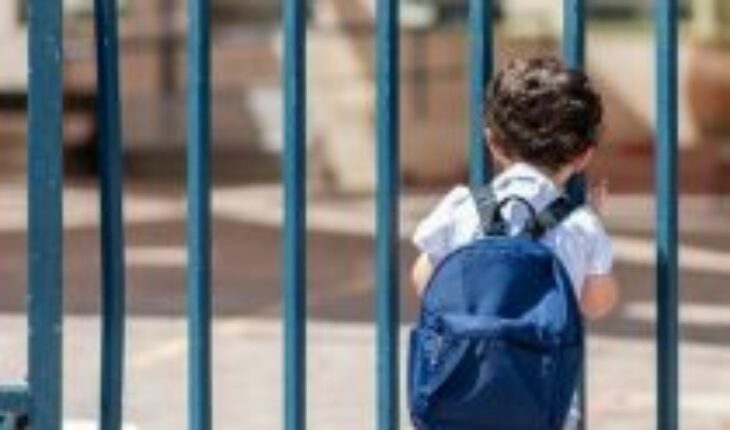It is already a classic, since the nineteenth century, in all situations of health alert for communicable diseases, to request the closure of schools to control transmission. But in the case of covid-19, there is not enough evidence or data to apply it in order to interrupt transmission and protect the health of minors.
In this pandemic, what the evidence shows is that the benefit of school closures has not been proven. In addition, it is not possible to describe in isolation its effect on community transmission, given that there are contextual factors that modify the impact of closures.
On the other hand, the role of children in community transmission is also not sufficiently clear and available data show that, among primary school children, transmission rates tend to be low.
Home Streaming
Home or home transmission has been observed to be more important than school transmission: secondary attack rates have been clearly lower in schools than in homes.
This situation can also be seen in Spain: the number of cases according to the scope of possible exposure shows that only 2% have been related to the school environment. Well below the home environment (35.7%) and also below the social (5.9%) or labor (5.1%).
The last situation report carried out in Spain just before the Christmas school holidays, where data on COVID-19 outbreaks were collected, mentioned that “the impact on educational activity is low, so that, in the last week, 99.51% of classrooms are in operation without being quarantined”.
Documented damage
On the other hand, evidence has been accumulating of the damage that can originate with the closure of schools in minors. Among them are the increase in anxiety and loneliness in young people. Likewise, there is also an increase in stress, sadness, frustration, indiscipline and hyperactivity of children.
But it also affects other aspects of children’s health such as nutrition, physical exercise or obesity. For many schoolchildren, especially those of lower socioeconomic status, schools are also a place to eat healthily and regularly.
And while the school closure lasts, the daily physical activity of the minors is also reduced. All this can have an impact on an increase in the prevalence of childhood obesity. In addition, learning problems can also increase, especially for children with fewer resources.
Nor can the problems of care that a closed school means be ignored, not only for parents who must be absent from their jobs to be with children, but for older people, more vulnerable, who will also exercise those care tasks: grandfathers and grandmothers.
If it is accepted that the purpose of school closures is to reduce social contacts to decrease transmission, it does not seem reasonable to expose vulnerable people. School closures should be considered only as a last resort.
This article was originally published by the SINC agency.
Óscar Zurriaga, Full Professor. Dept. of Preventive Medicine and Public Health (UV). Serv. Epidemiological Studies and Statistics. Sanit. (Generalitat Valenciana). Units. Joint Research Rare Diseases FISABIO-UVEG. CIBER Epidemiology and Public Health, Universitat de València
This article was originally published on The Conversation. Read the original.





